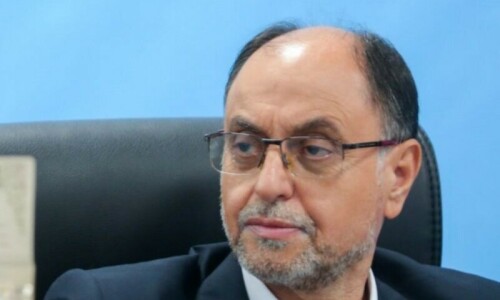CAIRO: A US vascular surgeon who departed from Gaza after a stint as a volunteer in the strip has said nothing prepared him for the scale of injuries he was faced with, while there.
Dozens of patients a day. Majority of them young. Most with complicated injuries caused by shrapnel. Many ending up with amputations.
“Vascular surgery is really a disease for older patients and I would say I had never operated on anybody younger than 16, and that was the majority of patients that we saw this time around” Shariq Sayeed from Atlanta, Georgia, told reporters in Cairo.
“Most were patients 13, 14, 15, 16 and 17 years of age. Mostly shrapnel wounds, and that was something I have never dealt with, that was something new.” In his stint at the European Hospital in Gaza, Sayeed said his team would deal with 40-60 patients a day. The vast majority were amputation cases.
“And unfortunately there is a very high incidence of infection as well so once you have an amputation that doesn’t heal, you end up with a higher amputation” he said.
Around 70 per cent of the surgeries he conducted were on injuries caused by shrapnel, with the rest mostly from blast injuries and the collapse of buildings.
Ismail Mehr, an anaesthesiologist from the state of New York leading the Gaza mission, stated that the volunteer medics were “speechless at what they saw” upon their arrival in southern Gaza, in the month of April.
Mehr is the chairperson of IMANA Medical Relief, a programme focused on disaster medical relief and healthcare support. They have provided treatment to over 2.5 million patients in 34 countries, with the number increasing day by day.
He travelled to Gaza several times in the past, but could not fathom what he saw this time round: “Truly everywhere I looked, I saw destruction in Khan Younis, not a single building standing.” Out of 36 hospitals that used to serve more than 2 million residents, just 10 were ‘somewhat functional’ by early April, according to the World Health Organisation.
Health facilities lack medical supplies, equipment, staff, and power supplies, Mehr stated. His biggest fear now is around the expected Israeli assault on the southern city of Rafah, where half of Gaza’s 2.3 million people have sought shelter.
“I hope and I pray that Rafah is not attacked,” he said. “The health system will not be able to take care of that. It will be a complete catastrophe.”
Published in Dawn, May 2nd, 2024












































Dear visitor, the comments section is undergoing an overhaul and will return soon.